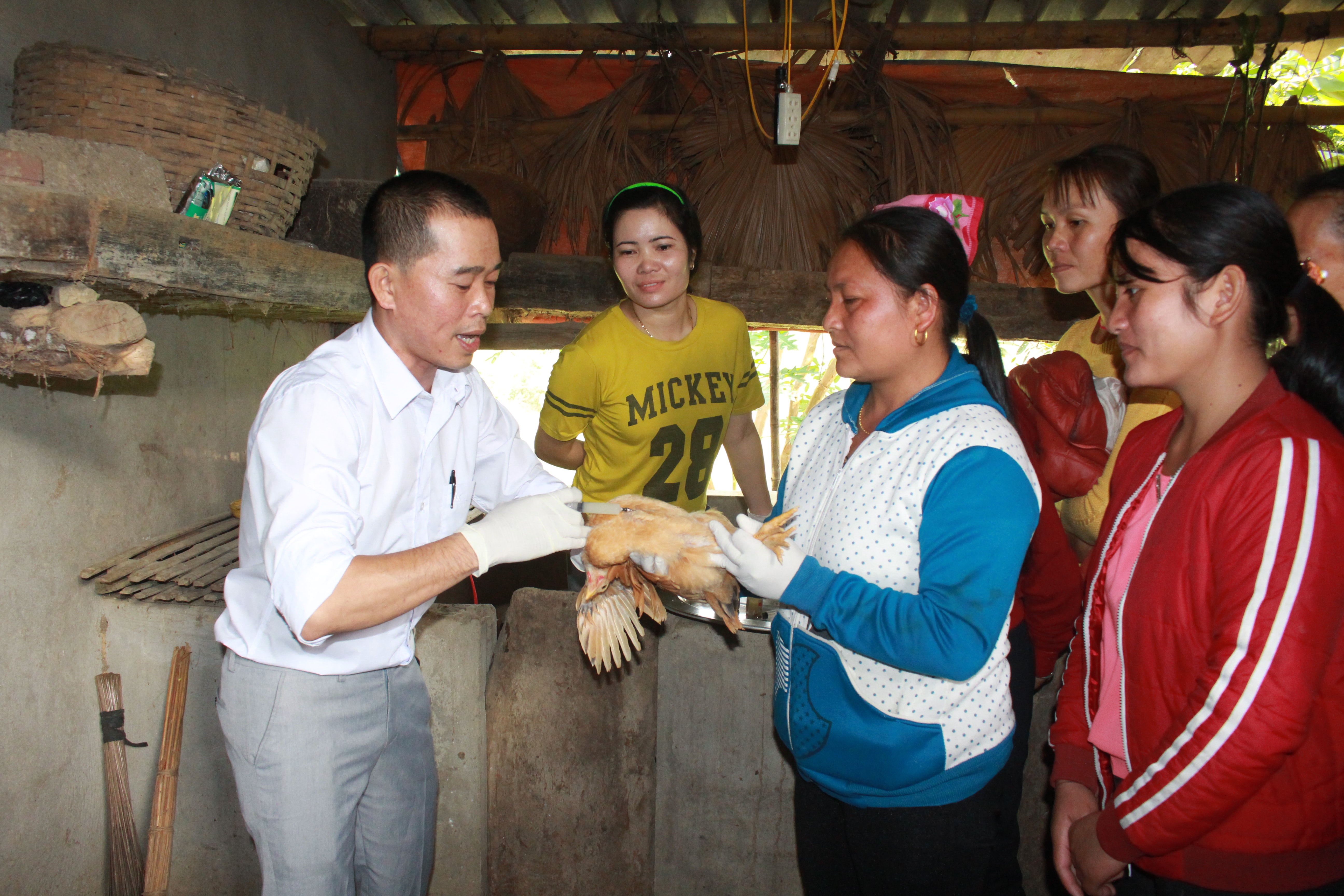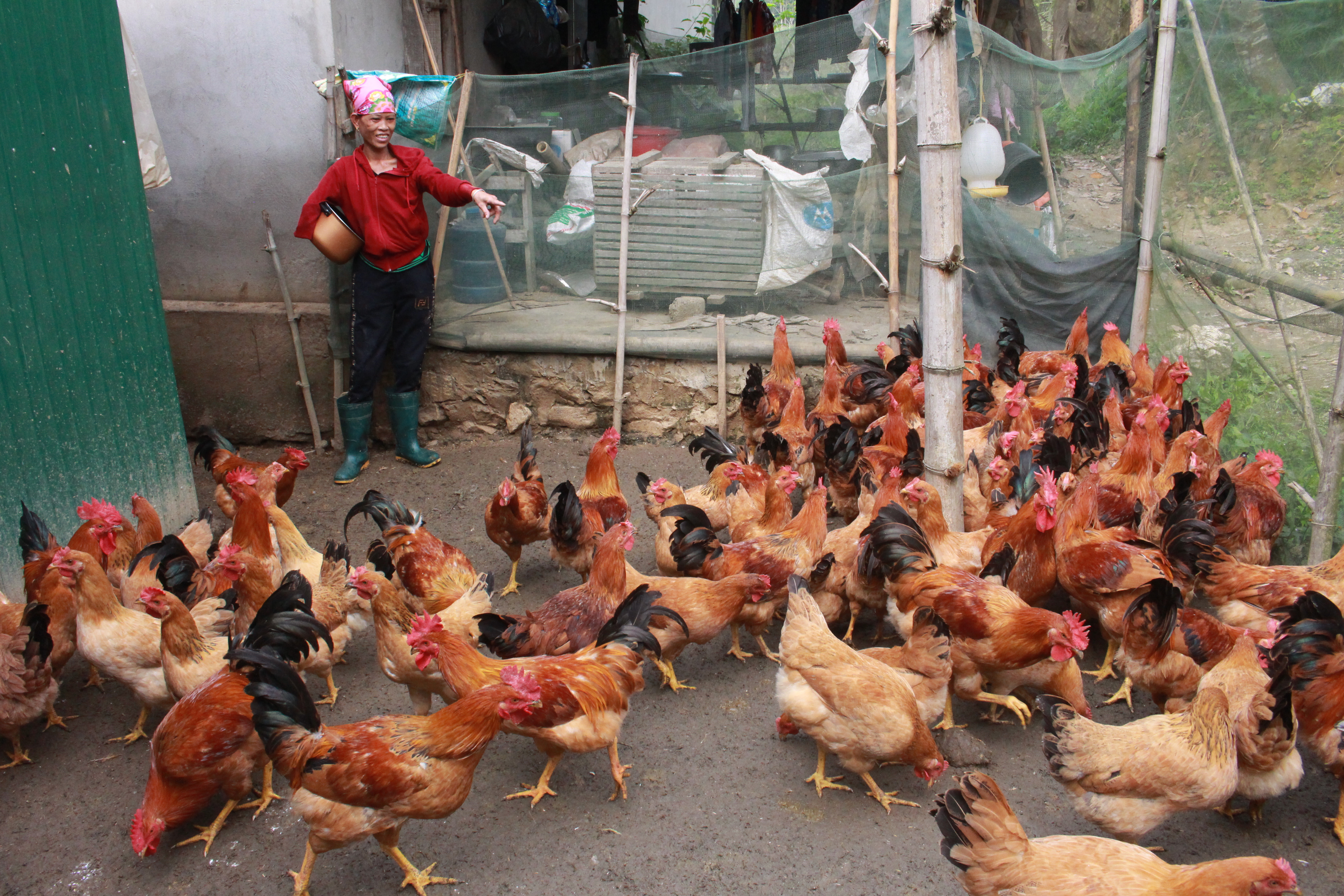Agricultural extension officers teach poor villagers to raise livestock at home.
(Baonghean.vn) - Agricultural Extension Station staff come to people's homes to guide them on free-range chicken raising techniques. The difference of these "classes" is that when participating in the class, each student is supported to buy a flock of chickens so that the teacher can come to each house to give specific instructions.
At the training sessions of the free-range chicken farming techniques class in Yen Hoa village, Hoa Son commune (Anh Son) organized by the Agricultural Extension Station of Anh Son district, the Thai ethnic women students discussed very enthusiastically.
 |
| During the learning process, teachers teach by hand-holding, creating conditions for all people to see, hear, and try their hands. Photo: Thai Hien |
Ms. Lang Thi Gam in Yen Hoa village shared: This is the first time ethnic minority women in Yen Hoa and Vinh Kim villages, Hoa Son commune have been guided by such enthusiastic hands. From the first day of school, her family and all students were supported with money to buy breeding animals, each household from 100 to 150 animals.
Next, each household is given specific instructions by teachers at home on how to build a barn, how to use ecological bedding, how to prepare a combination of feed for each stage of chicken development, how to clean and prevent diseases... so it is very effective.
According to Ms. Ha Thi Thuy's family in Vinh Kim village, Hoa Son commune, in previous years, they often raised chickens using traditional methods, without understanding the technical processes, how to select breeds, and how to use veterinary medicine, so production costs were high, productivity was low, and caused environmental pollution.
After attending a chicken raising class organized by the Anh Son District Agricultural Extension Station, with the teacher coming to her home to guide her step by step, Ms. Thuy was able to proactively learn techniques and methods for disease prevention and treatment for chickens, detect common disease symptoms in chickens, and use the right medicine and inject the right dose and method.
After 3 months of care, her family's chickens have reached the selling stage, weighing from 1.5 - 2kg.
 |
| After attending a chicken raising class organized by the Anh Son District Agricultural Extension Station, Ms. Ha Thi Thuy applied the method very effectively. Photo: Thai Hien |
Mr. Trinh Xuan Quy - Head of Anh Son District Agricultural Extension Station said: To link training with sustainable employment, based on a survey of the actual needs of farmers, Anh Son District Agricultural Extension Station has developed a vocational training plan that is close to the reality of each locality. With the motto "holding hands to show work", in recent times, Anh Son District Agricultural Extension Station has opened many vocational training classes for farmers such as making biofertilizers and raising VietGAP chickens.
In 2018, the Station opened a vocational training class on free-range chicken farming techniques for 35 ethnic minority people in Vinh Kim and Yen Hoa villages, Hoa Son commune. Participating in the class, each woman was supported with 30,000 VND/day for food and living expenses, with a total amount of 1.2 million VND for 3 months of study.
The difference in this class is that the Anh Son District Agricultural Extension Station opens it right in the students' garden. Accordingly, before attending the class, in addition to the amount of support according to regulations, the students also receive additional support from the Agricultural Extension Station to buy seeds.
During the learning process, the teacher taught by hand-holding method, creating conditions for all people to see with their own eyes, hear with their own hands, and try it out, applying both theory and practice right in their own flocks of chickens, so the results were very high, most of the students were able to keep 100% of the flock, the chickens grew quickly, currently after 3 months of training, the class has over 4,000 chickens ready to be sold.
It is known that before attending the vocational training course, households only raised 50 - 70 chickens. Since the course, many households have expanded their farming scale to 300 - 500 chickens, thereby gradually helping people earn more income, eliminate hunger and reduce poverty in the locality.

